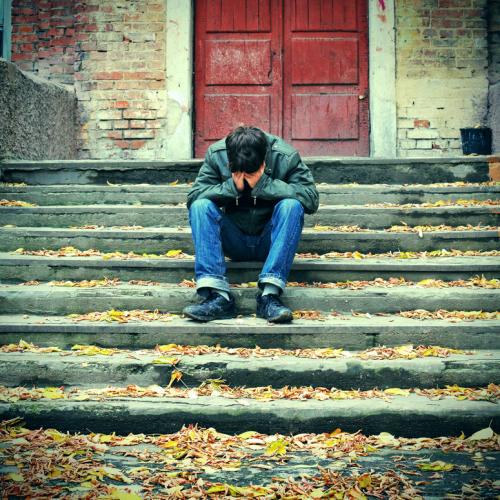Helping Grieving Teens: Dealing with the Shock of Grief

When hit by a loss, the teen’s initial response is shock. They’re stunned.
From the Grieving Teen's Heart
KATIE
You're what? Dead?
This can’t be happening. This is a bad dream.
I feel like my brain is on fire. The heat is spreading down my neck into my chest. I'm dizzy. I'm not breathing. I can't breathe.
I think I'm going to be sick.
I can feel the tears coming, welling up from deep inside. Do I hold it in? Do I dare let it out? I gasp and feel myself beginning to sob.
I cry and scream, but I can't hear it. It's like I'm deaf, blind, and dumb, all at the same time. Everything is dark. I feel like I’m floating. I don’t want to open my eyes.
I want to keep my eyes closed forever.
JOSH
What? Dead?
Yeah, right. I just talked to you. I just saw you this morning.
How can you be dead?
No. This is wrong. A mistake. Some kind of sick joke.
I blink and suddenly see the sad faces around me. I hear someone say, "No! No! No!"
I agree. No. This can’t be happening.
No. This is not real. You can't be dead.
We expect more of the same
Life. We're used to it. We expect to wake up, yawn, stretch, and open our eyes to the same world we went to sleep in. We get up, move, go through the motions, and engage in our routine.
Death changes all that.
In an instant, our world is changed. We stand motionless in the center of what used to be our life, blinking, hoping against hope that the scene around us will change and somehow go back to what it was before.
We're shocked. Stunned. Our heart has been hit. Our souls are shaking.
Teens are still discovering the world and who they are in it. Their sense of identity is powerfully linked to the people around them. When someone near them is removed, their whole being shakes. It can throw everything into confusion. At first, they're shocked and stunned - even immobilized inside.
You can make a difference
How can you help?
First, make your primary goal to enter the teen’s world and love them there.
The target is not to fix this, rescue them, or make this go away (all of which are impossible). Love begins with meeting them where they are, and accepting them there. It involves entering their world and being with them in their stuff.
Second, be aware that their world has changed forever.
They're stunned. Their minds are struggling to grasp the impossible. Their world is forever different, but they can't process or feel that yet. They're in shock.
Third, prepare yourself to be patient – with the teen and yourself.
Grief is a process, not an event or an activity. It is the mental, physical, emotional, and spiritual adjustment over time to a loss. Time does not heal all wounds, but healing does take time.
Prepare yourself to be patient. This is a hard, bumpy, and painful road.
Fourth, know that your presence is the most powerful gift you can give.
Show up. Words are cheap, if not useless at this stage. Just be there. Your presence can sustain them through the shock.
Adapted from recently released Teen Grief: Caring for the Grieving Teenage Heart.
Article Images




Comments